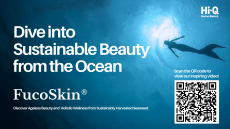Regulation and safety: global updates November

Here's our roundup of the key updates you need to know.
IFRA standards: how do they help keep the fragrance industry transparent and safe?
The International Fragrance Association (IFRA) Standards form the basis for the globally accepted and recognized risk management system for the safe use of fragrance ingredients and are part of the IFRA Code of Practice.
Discover our recent overview of the Standards, which offer guidance for formulators and ingredients players looking to make sure their fragrance ingredient or product is safe and functional, here.
The dark side of glitter: Beauty’s struggle to source mica untainted by child-labour
Mica is a glittery natural mineral widely used in beauty products, particularly colour cosmetics, but its supply chain has long been the focus of scrutiny due to how difficult it is for brands to assure the mining is safe and free of child labour.
In this exclusive interview, Cosmetics Design Asia editor Amanda Lim speaks to Fanny Frémont, Executive Director of Responsible Mica Initiative, to shine a light on the complicated conundrum of sourcing mica ethically.
Key points for cosmetics registration in Israel
For companies keen to register cosmetics products in both markets, our recent guest article from regulatory expert - Marcelo Gotthelf, consultant with Gott-Projects, Israel - reveals the big differences of which to be aware.
Find it in full here.
Turkey: beauty and personal care potential explained
Turkey is a rising market for cosmetics and a high number of products sold are imported. This guest article reveals all the regulatory issues around the market.
Burak Ayan, consultant with Ayansan Consultancy in Istanbul, Turkey, presents insight into why the market is worth paying attention to, and how brands can access it.
Transparency: how can the beauty industry respond? ‘We can quite literally change the world’
Increasingly conscious consumers feel they can make a difference by investing in products of natural origin – and supplying this demand is a way for companies to grow their brand share and increase their profits.
But unlike the food industry, natural beauty lacks a legal definition when it comes to ingredients claims.
In a recent guest article, Jayn Sterland, managing director of Weleda UK & Ireland, offered key expert insights into how beauty can respond to calls for greater transparency in the drive for true sustainability.
Read the full article here.
































